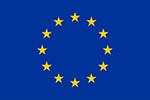Everything you always wanted to know about CBDCs (but were afraid to ask)
Central bank digital currencies (CBDCs) are a hot topic among financial institutions, policymakers, regulators, cryptocurrency enthusiasts, and entrepreneurs around the world. But what are they, and why are they considered so important?
What are Central Bank Digital Currencies?
- The general public (individuals & businesses) can hold money in two basic forms today:
In physical form, i.e., coins & banknotes. These are issued by central banks and are, in fact, the only form of central bank money that the public is allowed to hold today.
In electronic form, for example, in accounts held with commercial banks and other regulated financial institutions. These institutions, in turn, can hold some of their money (called reserves) in central bank accounts. - In other words, the public cannot open accounts directly with the central bank today or hold any form of central-bank-issued eMoney. A Central Bank Digital Currency (CBDC) would change that. It would be an electronic form of money, issued by a central bank, which households and businesses could use to store value and make payments. CBDC would be denominated in national currency, just like physical money, so 50 e-euros of a hypothetical ECB-issued CBDC would always be worth the same as a 50€ note. As such, CBDCs would be a new form of digital legal tender, performing all the essential functions of money (being a means of exchange, a unit of account and a store of value), just like physical cash.
Note: sometimes, a distinction is made between wholesale CBDCs (those used to settle transactions between financial institutions) and retail CBDCs (those used by everyone). This article is about retail CBDCs only.
